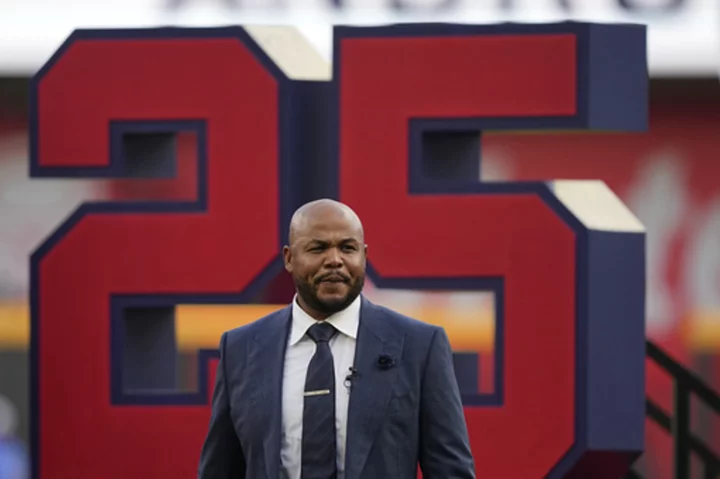NBA expansion is on the horizon, according to Adrian Wojnarowski of ESPN, with Las Vegas and Seattle as the most likely destinations for franchises in a move that would grow the league to 32 teams. The scheduling math is such that the NBA could balance its intraconference schedule, retain the in-season tournament and not exceed the current level of games.
It also presents an opportunity to eliminate the divisions that have been largely made irrelevant since 1-8 seeding in each conference became a reality for the 2015-16 season.
Make no mistake, a 32-team NBA opens the door for the league to clean up some of the competitive imbalance that is cooked into the recipe by locking itself into home-and-home interconference play, leaving teams to play some teams within their respective conferences four times and others three.
The NBA can have its cake with additional games to sell to various media outlets and eat it too with a schedule that makes sense from the often-overlooked standpoint of competitive balance.
Here's how it could work.
Shorten the regular season to 77 games
The math is almost too easy on this front. With a 32-team league, clubs would play each team from the opposite conference twice — the same as they do now — for a total of 32 games.
Intraconference play, meanwhile, would be set with three games against each of the other 15 franchises for a total of 45 games.
This 77-game slate would be the basis for the playoff and play-in tournament seedings. The NBA would just need to ensure that teams that get the extra road game one year receive an extra home game the next.
This is achieved by breaking each conference into two groups of eight teams. One group plays 34 road games and 33 at home one season, then reverses the ratio the following campaign.
What does that do to an NBA record book largely predicated on an 82-game schedule? We're glad you asked!
The in-season tournament counts for statistical purposes but not for playoff determination
With two additional teams in each conference, the pools for the in-season tournament could expand to four groups of four teams each. If the NBA prefers to keep pool play at home arenas, it creates a scenario where two teams play twice at home and two go on the road twice. Call it a built-in handicap that can be adjusted the other direction each season.
Essentially each conference could again be split into two groups of eight teams. Pool assignments can be randomly drawn (or geographically determined) with two selections from each group to create a four-team pool.
Here's where the math works. Three games in pool play, plus the quarterfinals and semifinals adds five games to the schedule, bringing us back to the same 82 the NBA plays right now. The championship game adds an 83rd game for two teams, again no different than what is planned for the 2023-24 season.
The NBA can choose or not whether to schedule an extra two games for the 24 teams that fail to advance out of pool play or one additional game for quarterfinal losers (which could be as simple as consolation matches between the two losing quarterfinalists in each conference).
Scheduling the in-season tournament in such a matter extracts it from the regular-season schedule in a fashion similar to how such cup competitions work in foreign leagues.
Conclusion
On the surface, the stickiest issue potentially adding extra games to the in-season tournament that carry no weight beyond individual statistics. It is one of the elements of the format introduced this season that is the most elegant.
The alternative, of course, is to continue to wrap the tournament games into the regular-season standings. It deters from having truly balanced schedules for the first time since the 1965-66 season, when nine teams played each other 10 times for a total of 80 games.
Expansion to 32 teams affords an opportunity for the NBA to rid itself of the obsolete divisional designations, balance the schedule within each conference and keep the schedule at 82 games, a requirement of each collective bargaining agreement since 1967 (the same year the schedule was increased to 82).
It's a solution that almost makes too much sense to be implemented.









